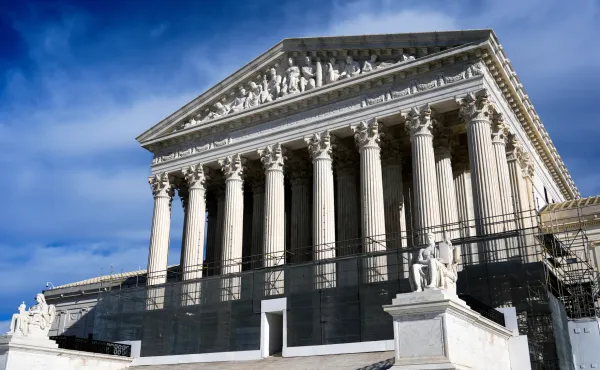The Crown, the Ledger, and the Ocean
Mercy is God’s means, God’s mind, and God’s weapon. He crowns His people with compassion, giving them authority to release burdens and cancel debts. To forgive is to let the ocean of His grace flow through you and overcome evil with good. Forgiveness is release. It breaks every chain.

A Communion Meditation on the Power of Mercy
As we approach communion this Sunday, I want to revisit a message I first preached on September 11, 2022—a message about the mercy of God, the authority He crowns His people with, and the spiritual warfare tied to forgiveness. Scripture approaches forgiveness from many angles, but together they form a single picture: mercy is God’s means, God’s mind, and God’s weapon.
The Words God Says about Himself
When God chooses to describe Himself, we should pay attention to His first sentence.
On Sinai, God brings Moses into a rare and fearful nearness. “The LORD descended in the cloud and stood there with him”—a moment matched only a few times in all of Scripture. And there He proclaims His own Name. The first words God chooses to speak about Himself are not declarations of raw power or sovereignty, but:
“Yahweh, Yahweh, God compassionate and gracious, slow to anger, and abounding in lovingkindness and truth” (Exod. 34:6).
He leads His self-description with compassion. With grace. With a steadfast love and faithfulness that frame everything else He will say about Himself.
Centuries later, David will quote this moment almost word for word: “The Lord is compassionate and gracious, slow to anger and abounding in lovingkindness. He has not dealt with us according to our sins” (Ps. 103:8-10). He says God “crowns you with lovingkindness and compassion”—as if the royal authority God puts on your head is the power to show mercy.
If you want to know what it looks like when a human being truly bears God’s crown, it will not primarily be seen in their gifts, or their position, or their insight, but in this: they are rich in forgiveness.
What Forgiveness Actually Is
The main Biblical words for “forgive” convey a very concrete picture: to unbind, to untie, to release, or to cancel a legitimate debt.
There is no forgiveness where there is no real debt. Forgiveness is not pretending nothing happened. It is not denying justice. It is the cancellation of something genuinely owed—a painful, relational, spiritual obligation that could rightly be demanded, and yet is freely released.
Picture every sin, every wound, every betrayal as a heavy pack strapped to someone’s back—buckles tightened, knots cinched, weight grinding the shoulders. Forgiveness is not saying, “That pack was never real.” Forgiveness is unbuckling it. Cutting the cords. Letting the burden fall from their back, though they truly owed you restitution.
Jesus even uses this language beyond what we would call “sin.” At times, He frees a person from an affliction, and the word can also be translated “forgave.” He looses them—whether from sickness, shame, debt, or bondage. Forgiveness is release.
So when the psalmist says God “crowns” us with lovingkindness and compassion, he reveals heaven’s definition of power. The diadem placed on the believer’s head is not brilliance or dominance—it is the authority to release. The kingdom entrusts you with a key: the power to unbuckle burdens no man can loose himself from. And mysteriously, as you release others, you are released. The creditor is as chained to the ledger as the debtor is to the bill.
Unforgiveness forms a counterfeit kingdom with its own arithmetic. It trades in accusation and leverage. We hold accounts because accounts give us control. We charge interest by rehearsing wrongs and reminding others of debts at opportune moments. But while we think we’re protecting ourselves, we’re actually becoming debt collectors in hell’s economy. The balance compounds not in their shame but in our bitterness. What we imagine as security becomes bondage.
Jesus warns that this bondage runs both directions: “If you do not forgive others, your Father will not forgive you” (Matt. 6:15). Grace received but not released ceases to flow. The mercy that once washed you now stagnates. Forgiveness is not an optional courtesy for unusually nice Christians—it is covenant law in the kingdom. The way you handle debts owed to you determines how heaven handles debts owed by you.
Does mercy deny justice? Never. Mercy transfers justice to the cross. God is not asking you to say sin doesn’t matter; He is asking you to believe the blood of Jesus matters more. Forgiveness moves the case from your courtroom to His. It may include confrontation, boundaries, and truth-telling—but its posture is always one of release, not leverage.
If you long for God to move in power, start here. The Spirit loves clean channels. He will not pour through a heart that functions like a vault. The same blood that canceled your impossible account trains your hands to cancel lesser ones. The moment you close your ledger, you open your heart to God’s power of love.
The King who crowned you with compassion will supply the mercy He commands you to give. Treat every debt as a chance to display the cross, not to collect collateral. The crown you wear will decide the government you extend.
Mercy as the Mind of God—Escaping the Banker’s Chair
“Let the wicked forsake his way and the unrighteous man his thoughts; and let him return to the LORD, and He will have compassion on him, and to our God, for He will abundantly pardon. ‘For My thoughts are not your thoughts, nor are your ways My ways,’ declares the LORD” (Isa. 55:7-8).
When God says, “My thoughts are not your thoughts (Isa. 55:8),” we often envision galaxies and mysteries that are beyond comprehension. But the context is forgiveness. The distance between heaven and earth, in this passage, is measured not in intellect but in mercy. God’s thoughts out-soar ours because His compassion outpaces our calculation. He pardons abundantly; we forgive sparingly.
Human thoughts keep spreadsheets. We calculate fairness, weigh offenses, and decide what the offender must do to make things even. Divine thoughts are different. God counts only to cancel. “He will abundantly pardon”—not reluctantly, not mathematically, but with overflow. His mercy is not a line item; it’s a flood.
These heights of mercy are where God wants His people to live. To think like God is to love beyond logic. Forgiveness is not weakness; it is divine altitude. The higher you climb, the clearer you see. Refusing to forgive keeps you ground-bound, choking in the thin air of fairness. To forgive is to breathe heaven’s oxygen.
Jesus’ parable of the unforgiving servant exposes our lowly, serpent-like thoughts. A man forgiven a billion-dollar debt throttles a coworker for pocket change. He had tasted mercy but never metabolized it. He walked out of grace and back into bookkeeping. And that is the banker’s temptation—the false strength of control that comes from holding another’s moral mortgage. Unforgiveness feels powerful because it turns us into lenders. We set terms, charge emotional interest, and dictate payment plans. Sometimes we even install “early-payment penalties,” making reconciliation costly because we prefer leverage to peace.
But this credit system belongs to hell’s economy. It funds our pride at the cost of our peace. The ledgers we keep on others’ wrongs become chains around our own ankles. We think we’re managing accounts, but we’re living in a vault. Jesus warns that the unforgiving man was “delivered to the tormentors”—for torment is the natural interest rate of resentment. The longer the account stays open, the more expensive it becomes to your soul.
Forgiveness, by contrast, is liquidation, not leniency. It declares bankruptcy on your right to vengeance because the cross already satisfied justice. To forgive costs something—it feels like a loss. But in heaven’s balance sheet, it’s investment: “Lay up treasure in heaven.” Each act of mercy transfers your wealth into eternity’s currency, where nothing corrodes.
So let the wicked forsake not only his ways but his thoughts of unforgiveness. You cannot walk in divine mercy while thinking like an accountant. When you forgive, you step into God’s mind. You see others not as debtors to your hurt but as souls redeemable by the same blood that redeemed you.
Look at your spiritual finances. Are you earning interest on someone’s failure? Do you replay their debt to feel solvent? Tear the note. Close the account. You were never called to be a creditor, but a conduit—a living extension of the King’s own generosity. His ways are higher because His mercy is deeper.
Mercy as Warfare—The Ocean That Overruns the Accuser
“I have forgiven . . . so that no advantage would be taken of us by satan; for we are not ignorant of his schemes” (2 Cor. 2:10–11).
Unforgiveness is not only sin—it is satanic strategy. Paul unmasks it as one of satan’s oldest cons: to turn the righteous into his weapons. The enemy’s genius lies in recruiting saints to carry his accusations while believing they defend holiness. When bitterness hides under sanctimonious language, hell wins.
The Corinthian church had disciplined a man who repented, yet they hesitated to restore him. They liked the feeling of rightness too much. Paul warns, “If you do not forgive, you will be outwitted.” Unforgiveness is spiritual espionage. It gives the accuser inside access. Every time we rehearse someone’s failure, we echo his name—the accuser of the brethren. Mercy, by contrast, is counterintelligence: it exposes and disrupts the enemy’s network. To forgive is to cut his supply line. Mercy is warfare against the arch accuser.
Forgiveness, then, is conquest. “Do not be overcome by evil, but overcome evil with good” (Rom. 12:21). The cross is not where justice failed; it is where justice was satisfied and the accuser disarmed. When Jesus said, “Father, forgive them,” He wasn’t surrendering—He was disarming principalities and powers!
At Calvary, God did not ration grace. He “lavished” it. The Greek word means to pour beyond measure, to make overflow. Redemption came not as a drop but as an ocean. The tide of mercy rolled out from Golgotha and still advances, wave upon wave, drowning the record of sin. Divine forgiveness is not a drizzle down a cautious pipeline but a flood from eternity’s heart into a bankrupt world.
And yet how strange that drenched people so often ration mercy like misers! We have received an ocean and offer others a teaspoon. We act as though grace were scarce when it is the one commodity that multiplies as we spend it. You will never run out of what you pour out. You only run dry when you dam it up. “Blessed are the merciful, for they shall obtain mercy” (Matt. 5:7).
Unforgiveness, on the other hand, is spiritual drought. It leaves you stranded on the sandbar of self-righteousness, where the waves once reached but now recede. You may think withholding mercy punishes the offender, but it only isolates you from the current. The same tide that washes away their debt is meant to carry you deeper into joyous, fathomless freedom. To forgive is to rejoin the flow of grace; to withhold it is to side with the accuser’s resistance.
So forgive—not to excuse, but to overcome. Forgive, lest you be outwitted. Every act of mercy is an act of war. Every release is a strike against the kingdom of accusation. When you stand in the presence of Christ and say, “Father, forgive,” you are not capitulating—you are conquering. You are letting the ocean roll through you.
“He will again have compassion on us; He will tread our iniquities underfoot and cast all our sins into the depths of the sea” (Mic. 7:19).
Nobody will gather at the marriage supper of the Lamb except as one kind of person: broken, forgiven, grateful, forgiving—eager to give to others what has been given to them.
Communion: The End of Debts
Returning to the table set before us this Sunday.
Communion is a visible proclamation that your billion-dollar debt has been cut from your back by the blood of Christ. You come to the table as someone swept away in an ocean of God’s undeserved mercy, not as one who has had a little holy water sprinkled politely over their sins.
If that is true, then you cannot approach the bread and cup as a banker licking his pencil, ready to add another mark to someone else’s ledger. You cannot, in any honest way, partake of a broken body while you hold a lien against a brother or sister.
None of this means we avoid hard conversations. Jesus also says, “If your brother sins, rebuke him; and if he repents, forgive him” (Luke 17:3). The answer to conflict is not cowardly silence. But our whole posture must be bent toward forgiveness—eager, ready, longing to unbuckle the pack from another’s shoulders.
I think of my father, in a wheelchair near the end of his life, when a man who had been gone for twenty years—a wayward brother—came to greet him. My father took his hand, pulled him close, and with a trembling earnestness asked, “Have I ever disrespected you or treated you wrong? If I have, would you please tell me and forgive me?”
Here was the man who had stayed, asking for forgiveness from the one who had left.
This is what it looks like when God’s thoughts replace ours. This is what it looks like to approach the threshold of eternity, wanting no unpaid debts outstanding—not because we have collected them all, but because we have released them all.
The Lord’s table is where the ledger closes, where justice is transferred to the cross, where the accuser is silenced, and where an ocean of grace breaks open through hearts of gratitude.
May we all examine ourselves and partake worthily—remembering, honoring, and expressing only Him who died for us.





